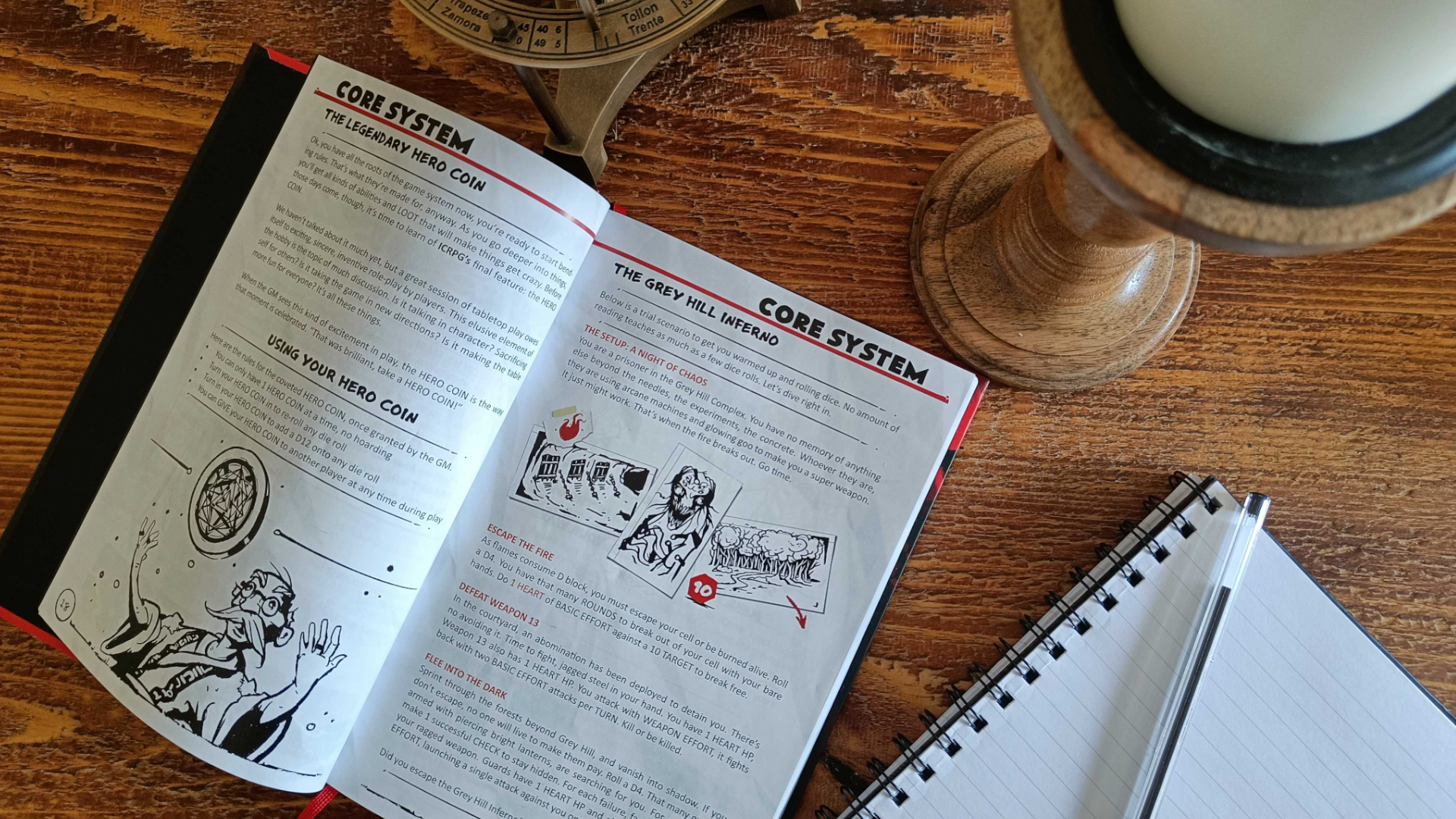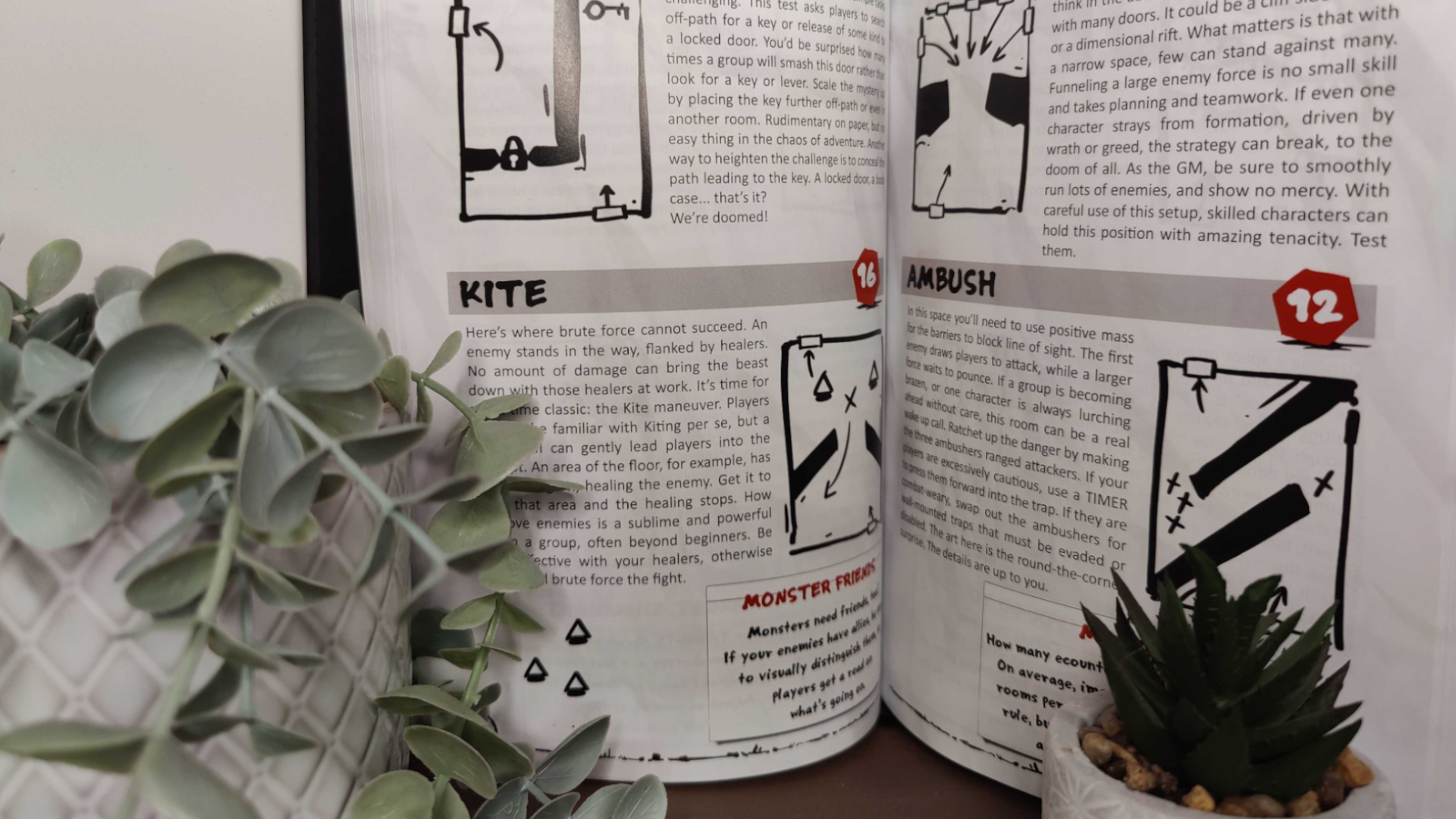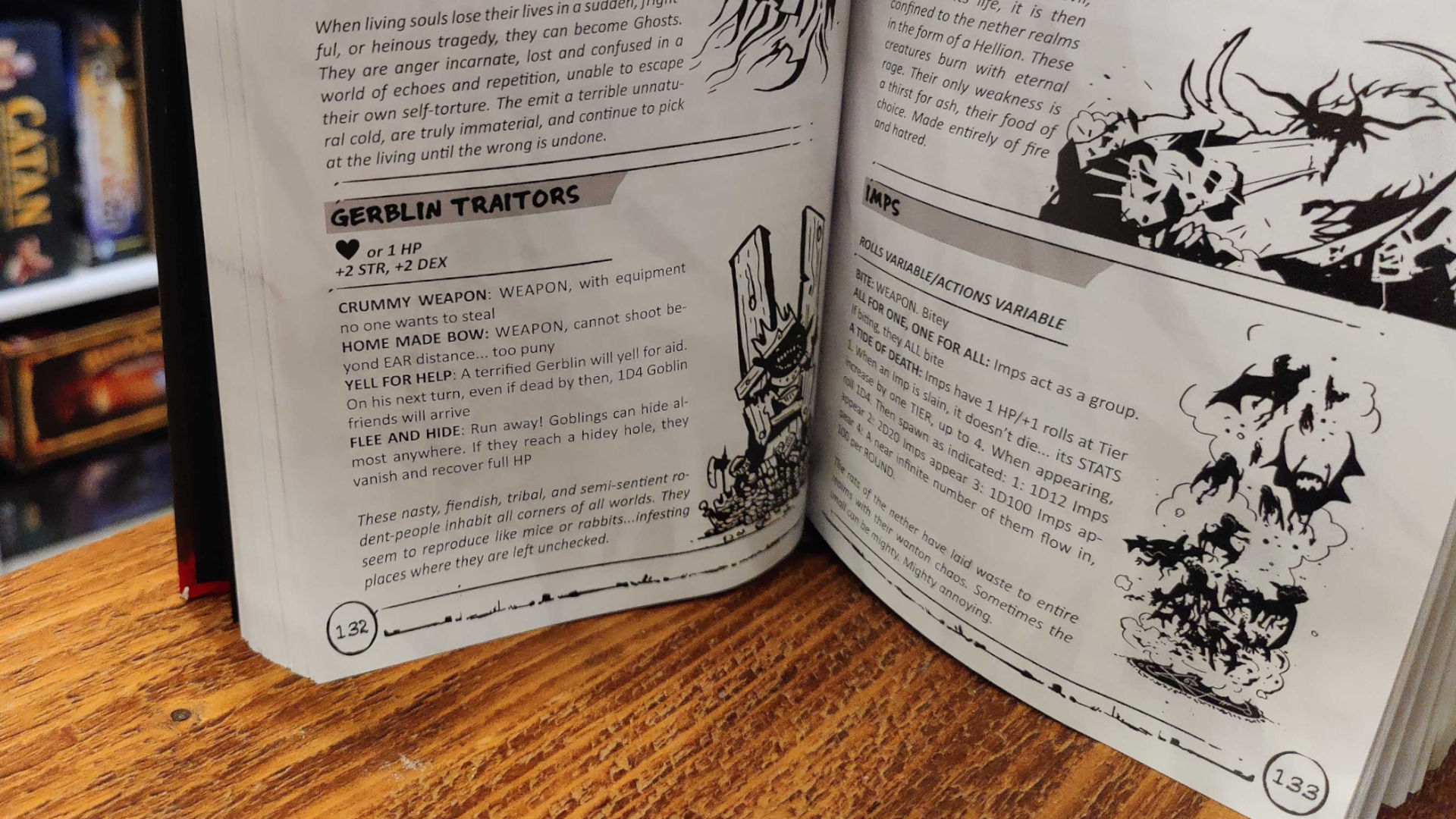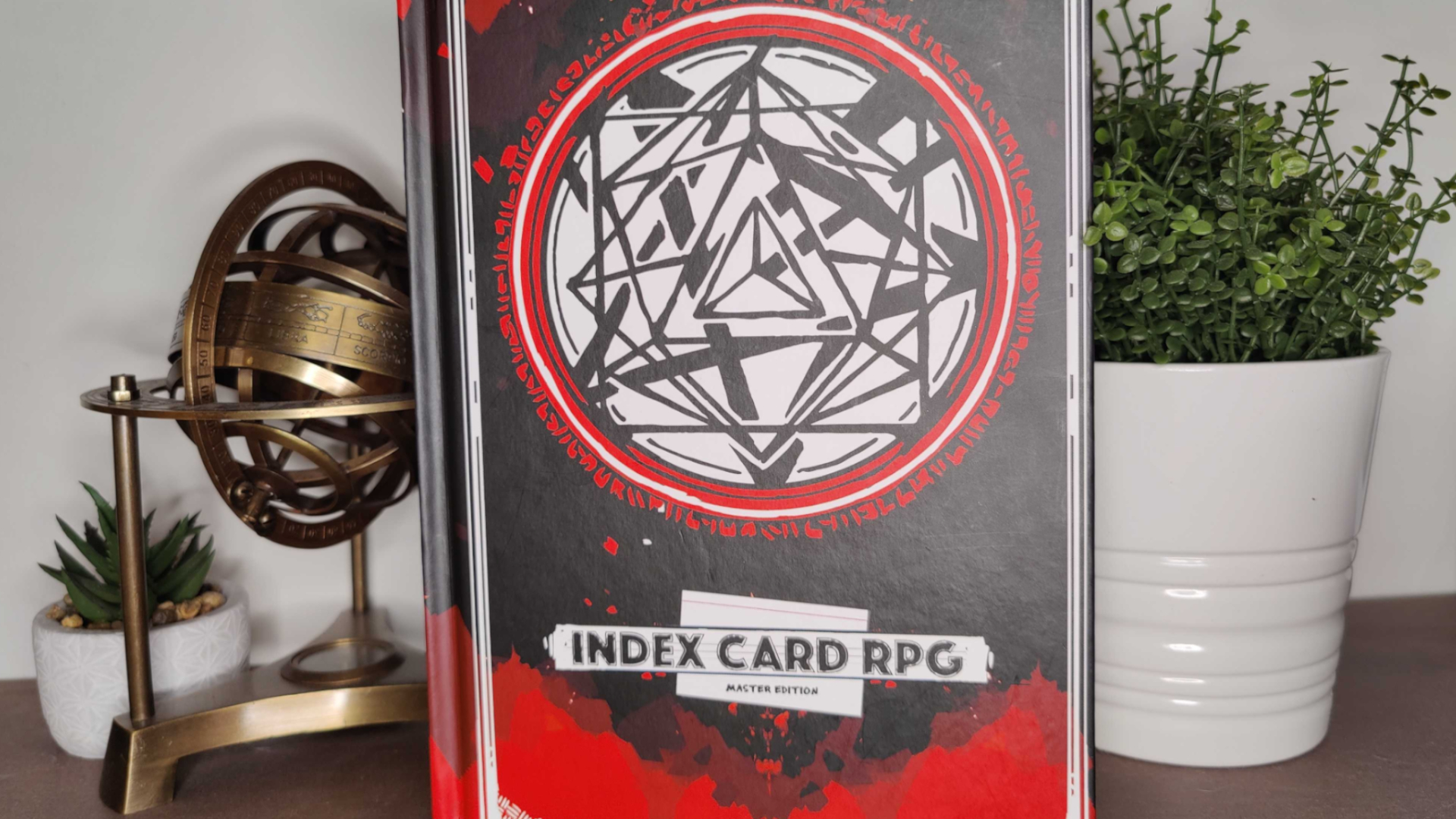GamesRadar+ Verdict
Beginners and veterans can get a tremendous amount out of Index Card RPG, and it's one of the more accessible systems on the market right now. While it doesn't have as much depth as the competition, few can match it for ease-of-use.
Pros
- +
Simple rules and character creation
- +
Easy to get into
- +
Multiple settings in one book
- +
Flexible Milestone system
Cons
- -
Not as deep as other systems
- -
Some settings are more engaging than others
Why you can trust GamesRadar+
If you've got no idea what a d20 is and have never slain a dragon using math and imagination, Index Card RPG needs to be on your shelf. In fact, I'd be tempted to recommend it for beginners over something more well-known like D&D.
Yes, I know. It's a bold statement. But Index Card RPG is worthy of that. Accessible, easy to understand, and quick, the bar for entry here is incredibly low. Complete novices can be rolling dice and, crucially, understanding what's going on in somewhere around ten minutes.
It's worth grabbing even if you aren't new to pen-and-paper quests and the best tabletop RPGs, actually. Superb advice that can be used with any system elevate ICRPG, and the Master Edition that I got my hands on represents the game at its peak.
What is it, and how does it work?

Although Index Card RPG features the same brand of sword and sorcery seen throughout the best Dungeons and Dragons books, its means of delivering that content is a lot easier to digest. Plus, the Master Edition throws in bonus settings that are even more compelling than ICRPG's standard fantasy; you can play Farscape-style sci-fi with Warp Shell, superhero action a la Vigilante City, an undead Western via Ghost Mountain, and the prehistoric Blood and Snow that takes us back to the Ice Age. Crucially, these all use the same accessible gameplay.
With that in mind, let's talk mechanics. Rather than getting tangled in numbers when creating your adventurer or struggling to remember various sub-rules that dictate what you can and can't do in any one moment, Index Card RPG keeps things simple. For starters, making a character is deliberately straightforward: choose a life-form, AKA 'race', type (or 'class'), and scribble down a single-sentence story. You then put six points into any of your six stats - Strength, Dexterity, Constitution, Intelligence, Wisdom, and Charisma - and choose a Ability to go with some equipment. That's it - you're ready to get started. It's quick, painless, and wonderfully accessible.
It's a thing of pure imagination, and the results are special
The same is true of the game in-action. Namely, scenes are given a single target number (usually ranging between 10 and 18) that's always visible on the table. To complete any task within that scene, players must hit the number by rolling a 20-sided die and adding one of their stats to the total. However, don't think this is a static goal. Players can reduce that number by taking certain actions, like lighting torches in an otherwise-pitch black cavern. This provides tangible consequences for the player's ideas and/or hare-brained schemes. It's an elegant way of making them feel involved, not to mention awesome.
In much the same way, ICRPG consolidates attacks into categories that always use the same dice - the aim is to let you focus on doing something cool rather than stressing about statistics. Hitting something with a melee weapon? Break out the six-sided die to deal damage. Calling upon eldritch magic or casting a simple fireball? You'll need a 10-sided die either way. This results in much less rules-confusion where you're struggling to remember what a +1 longsword rolls compared to a bog-standard handaxe.
Throw in a health system inspired by video game 'hearts' (where one heart equals 10 points) and you're left with a game that goes out of its way to be beginner-friendly. Mileage may vary, but in my experience, you can genuinely be up and at 'em within minutes.
Is it any good?

Naturally, getting into the action quickly isn't much use if said action isn't fun. But Index Card RPG doesn't have that problem. Despite being thoroughly undemanding in terms of brain-power, it also has enough depth not to feel like a feather-weight distraction. There's plenty to grapple with here when it comes to strategy and abilities, but the way you engage with those systems is simple.
That defines ICRPG; it's about letting you be as cool as possible, as quickly as possible. It took players in my group barely any time at all to get the hang of, to the point that we were able to create an engaging hero for a newcomer in the amount of time it takes to brew a cup of coffee.
This extends to Dungeon/Game Masters too, by the way. Along with advice for making your life easier, you can also buy a series of very cheap, illustrated Index Cards for printing out. These help you create entire sessions much like a Tarot reading. Want to see the adventure location? Draw a random card. Can't decide on a boss? Draw another card. It's perfect if you're a time-strapped GM and ideal for improvisation - in my test session, we had a blast coming up with explanations for the often-bizarre cards we ended up with. It's a thing of pure imagination, and the results are special.
I learned more from these pages than in a half-dozen competitors
To be honest, that stands even if you don't use cards. ICRPG: Master Edition is crammed with genuinely useful advice on how to run a better session, and I learned more from these pages than in a half-dozen competitors. Whether it's optimal session structure, escalation via timers that keep everyone on the edge of their seat ("in three turns, the cave is going to collapse"), story architecture for better plots, or battle-tactics to challenge your players mentally as well as physically, Index Card RPG is an essential read. It made me excited to create an adventure, and that's the best feedback I can probably give.
You're not locked into ICRPG's settings, either; you can absolutely utilise its ideas for something like D&D. Actually, the book even encourages you to do so. There's a lot of cross-compatibility here, so even if you have no intention of basing a game in the Index Card world of Alfheim, there's something for you within these pages.
Not that you should dismiss these settings out of hand. While the fantasy-flavored Alfheim doesn't do much to stand out (which is probably the point), the others are fascinating. Take Warp Shell. This may sound like your average space epic, but it provides a twist with sentient ships that carry heroes to random times and dimensions where their help is needed most.

Similarly, Ghost Mountain is a Wild West story of good vs evil… where a slice of 1800s America has become the battleground of Heaven and Hell, and the dead don't stay that way. Even the superhero escapades of Vigilante City veer off their expected course by providing an experience that's more in the vein of the Infamous or Crackdown video games than Spider-Man.
Personally, my favorite might be the prehistoric Blood and Snow. Exploring a precursor world where cities don't exist and megafauna roam the ice is a compelling idea we don't get all that often in the tabletop space.
Should you buy Index Card RPG?
Thanks to its emphasis on flexibility, accessibility, and empowering players, Index Card RPG is an excellent place to start your tabletop journey - or continue it. I've never seen a system that's easier to get into, and it's surprisingly robust in spite of this.
You'd be right in saying it's not perfect. It lacks the crunch of some systems and the depth of others. Yet it's scrappy. Clever. Imaginative. In short? ICRPG is an example of everything that's great about this hobby.

I've been writing about games in one form or another since 2012, and now manage GamesRadar+'s tabletop gaming and toy coverage. You'll find my grubby paws on everything from board game reviews to the latest Lego news.



